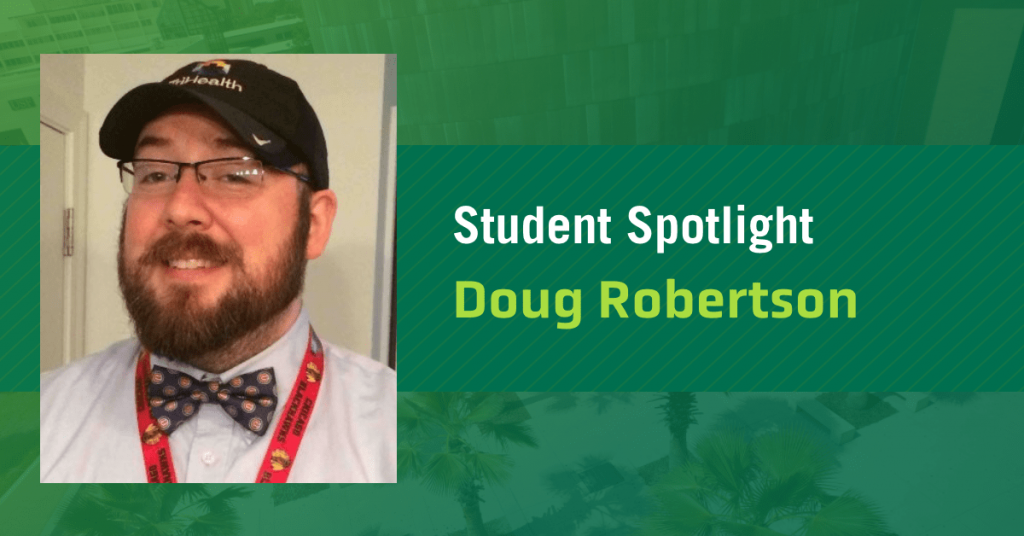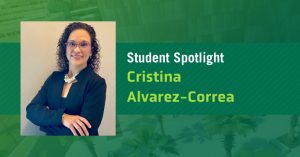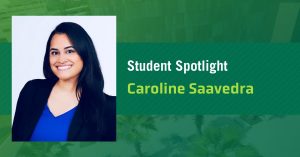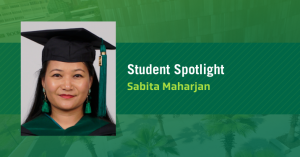After 13 years in health IT, Doug Robertson realized he wanted something new.
The Cincinnati resident wasn’t sure what that was, but he was sure it was something that would allow him to take on more of a leadership role instead of a direct support position. He considered an MBA as he weighed whether to stay in healthcare. After a long period of contemplation, Robertson opted not to take his career in a different direction.
“After some research, I came across USF’s Health Informatics program and decided ‘This is the program for me,’” Robertson said. “What better way to reinforce my 13-year background than a master’s degree in Health Informatics?”
Currently a Data Center Technology Manager with Ohio’s TriHealth, Inc., Robertson has been working around Epic EHR systems for several years. He’s become an expert and team leader for the implementation of technology in a healthcare setting, particularly related to the software development life-cycle, EHR architecture and how to build business cases. Since earning his Master of Science in Health Informatics from USF Health, he has been able to apply a number of lessons from the online classroom to his daily work.
“Many of the classes that I have taken through this program go into detail on software development life cycle methodologies and how they pertain to healthcare. How to engage administration, physician leadership and IT. It’s not just an IT project,” Robertson said. “Artificial intelligence, open APIs and big data are not just IT projects. They are organizational business strategies that affect patient care and my USF coursework did a tremendous job presenting the unique challenges of implementing large scale IT projects in a healthcare setting.”
Robertson, a husband and father of three, works an average of 50 hours per week. As he looked to return to school, he knew one thing for certain — online school was the only way forward.
“I knew an online program was a necessary fit for me,” Robertson said. “My research led me to USF Health’s Morsani College of Medicine. It’s highly ranked and has a well-respected association with the teaching hospital Tampa General. I’ve participated in technology reference calls with Tampa General. Having the opportunity to understand how USF Health/Tampa General was leveraging technology pulled a little on my heart strings. It was meant to be.”
Following his first HIMSS annual conference in March, we caught up with Robertson to ask him about trends in health IT, what he thought of the conference and what excites him about the future of the industry.
What are some developments in the world of health IT that excite you and what do you think will have the biggest impact on your work?
“It would have to be the application of AI to drive evidence-based medicine. At first it will be guided and nurtured by clinicians and data scientists, until eventually being driven by cognitive neural computer networks. Combine that neural network with genetic sequencing, pattern recognition on diagnostic images, mining bedside machine data and other machine learning techniques into a single application and you have a virtual assistant to aid the provider in decision making at the point of care.
“How will this impact my work? Well you must store the data somewhere! The amount of data required to be collected and maintained will continue to put a burden on healthcare organizations. Scalability of existing on-premise storage solutions will become a choke point to progress. Purchase requests? Capital project approvals? Ship dates? The only way to scale on-demand, or just-in-time, will be to adopt some form of cloud strategy. I foresee this as my duty to usher healthcare to the cloud.”
From the look of it, you work in data center solutions. The cloud was a big topic at HIMSS18. What did you make of the talk about the cloud and how do you see increased use of the cloud impacting healthcare companies across the country?
“Is it too harsh for me to say, ‘Adopt or die?’ For the last three decades, healthcare has implemented nothing but turn-key clinical solutions. If you find yourself waiting for the EHR vendor to produce the next big enhancement aimed at increasing physician engagement, patient satisfaction, drive better reporting or whatever, you are already behind the eight ball. Once the EHR vendor provides that enhancement, all your competition has it too! It’s a level playing field at best. The only way to drive separation in the market is to deliver a unique physician/patient experience through tools and micro services that your competition doesn’t have. How do we accomplish that? By developing a solid cloud strategy for scalability of supporting infrastructure, do an about face on these turn-key only strategies and pull a Steve Ballmer and hire “Developers, developers, developers, developers! YES!”
You attended HIMSS18 in Las Vegas. Was that your first HIMSS conference experience? What was your favorite part of that experience? Your biggest takeaway?
“Yes, this was my first HIMSS conference and my first trip to Vegas. I’m not much of a gambler, but I had fun! My favorite part of HIMSS had to be seeing Eric Schmidt speak as the opening keynote. That was amazing. I also enjoyed participating in the optional first day Cloud Computing Forum. The forum was chock full of speakers discussing their successful, and not so successful, stories of venturing into the cloud, what the future of the cloud means to healthcare and what road blocks leaders face today in transitioning to the cloud. Seeing all the new exciting advances in healthcare that are on the horizon, and the idea that I will have the opportunity to participate and shape those technologies (cloud, AI, open APIs) and how they are adopted, is my biggest takeaway. That’s exciting stuff.”
Attending HIMSS18, you see the current state of health IT and then you see the direction many envision it heading. What role do you see educators like USF playing in an industry that is so quickly evolving and growing in importance?
“Preparing HIT students about the healthcare landscape and the necessary players required to make information technology implementation successful is key. Helping students understand healthcare’s compliance and risk needs for protecting health information is also extremely important, especially as we all strive to push for more interoperability and sharing of that protected health information.”
As someone who works closely with data collection and sharing, what are your thoughts on the current state of interoperability and regulations that are developing this year? i.e. TEFCA (Trusted Exchange Framework and Common Agreement).
“Electronic eligibility, claims submission, local/regional Health Information Exchanges (HIE) and even the EHR vendors have all helped standardize and increase the sharing of electronic data while eliminating some overhead. The issue here is that it really isn’t providing benefits to the patient. It’s more for documentation, compliance and administrative overhead. Sure, if your hospital encounter happens at an organization that participates in the same HIE as your provider, they are sharing your data and you benefit. What if they are not a part of the same HIE? The big win with TEFCA lies in the ability to drive more benefit to the patient.”
EHRs will continue to play an important part in the future of healthcare, from patient engagement to the execution of care. How do you see EHRs evolving as the industry develops open APIs for data sharing, as patient portals become more user friendly?
“True open API adoption has a real opportunity to open many doors for the healthcare IT world. This would allow organizations to develop their own enhancements and not rely on the EHR vendors to provide new feature functionality in their EHR software. I’m in a market where all the major health system players leverage the same EHR vendor. We are all leveraging the same patient portal supplied by the EHR vendor. It becomes a race to see who can implement the new features first. Open APIs would allow us to develop and provide a unique patient portal experience and create some differentiation between us and our competitors.”
What is a fun fact about you?
“The average person reads right around 200 words per minute. The average book has 250 words per page. The average book has 240 pages. Read 10 minutes a day and you will finish a book in a month, or 12 books a year. I don’t do New Year’s Resolutions, but instead I set an annual reading goal. I have been doing this since January of 2012 and as a result I have read over 150 books. I started out attempting 12 books a year and have increased it slightly ever year. This year I’m shooting for 30.”



